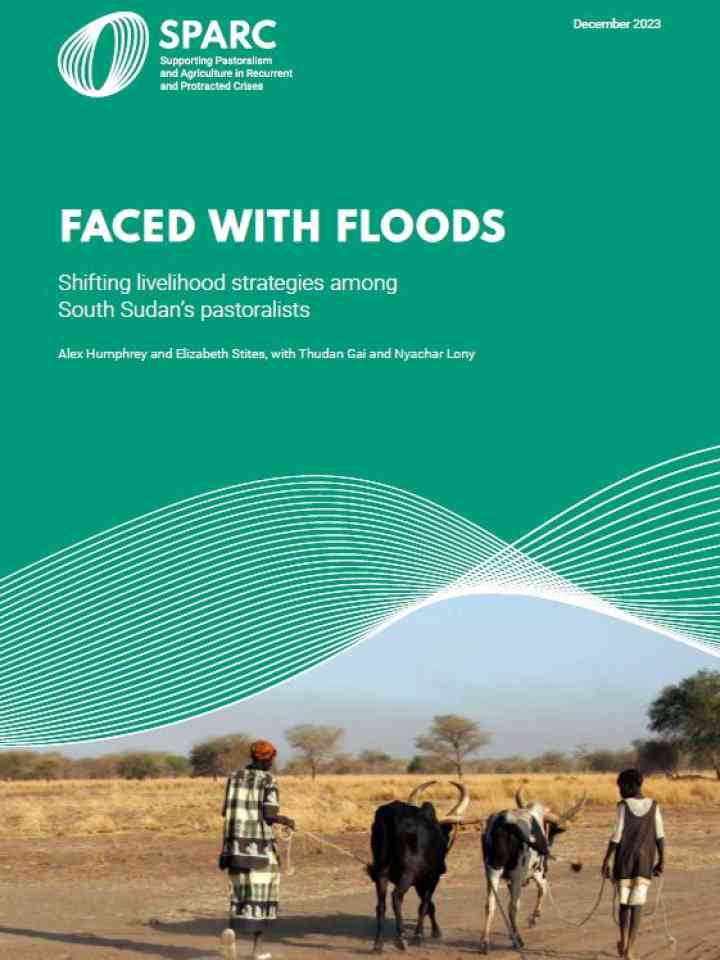Faced with floods: Shifting livelihood strategies among South Sudan’s pastoralists
This report explores how pastoralists and agro-pastoralists in South Sudan's Unity State are adapting their livelihood strategies in response to conflict and climate shocks. Conflict and climate shocks are driving rapid change within the pastoral and agro-pastoral livelihood systems of many South Sudanese households. Recent prolonged and widespread flooding has caused extensive crop and livestock losses and a reorientation of the livelihood strategies upon which communities are most reliant.
However, there is a dearth of evidence about the specific ways pastoralists and agro-pastoralists have adjusted their livelihood strategies, and similarly about the extent to which these shocks – and communities’ responses to them– are likely to spell permanent versus temporary changes to the broader pastoral livelihood system. Some donors and implementers in South Sudan are asking:
What is the future of pastoral livelihood systems amidst such volatility?
Will conditions conducive to pastoralism return?
If conditions return to normal, to what extent will people resume pastoral production?
How successful will recovery be, and how long will it take?
This new report, with accompanying summary, begins to address these questions by examining shifts in livelihood portfolios in South Sudan’s Unity State.
Explore further
